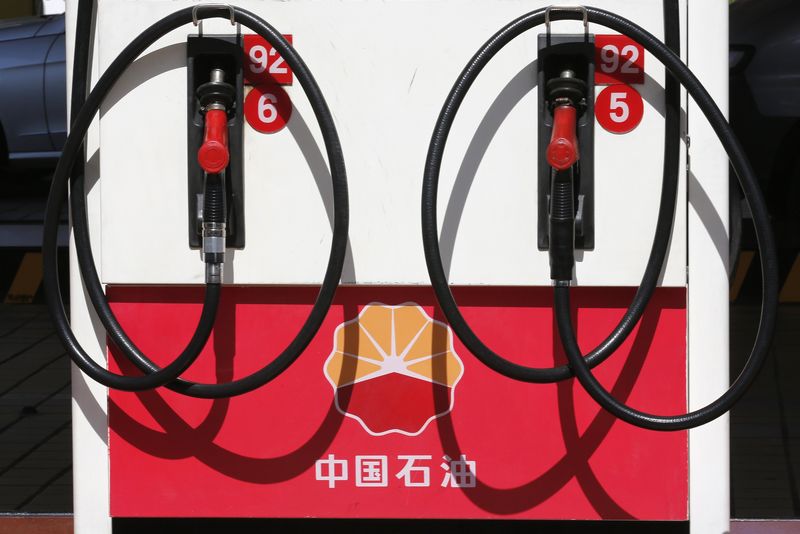Investing.com– Oil prices rose in Asian trade on Monday amid easing fears of more Federal Reserve rate hikes, although anticipation of several economic readings this week, particularly from China, kept traders on edge.
Markets were also encouraged by the prospect of tighter supplies, after major suppliers Saudi Arabia and Russia said they will maintain their ongoing supply reductions until the end of the year, heralding tighter oil markets.
Crude markets were still nursing steep losses over the past two weeks, as traders priced in a much lower risk premium from the Israel-Hamas war, given that fears of supply disruptions in the Middle East had not materialized.
But these losses were somewhat tempered by a drop in the dollar, as less hawkish signals from the Fed and weaker-than-expected spurred increased bets that the central bank will not hike rates any further.
The Israel-Hamas conflict also showed no signs of de escalation, as Israel rejected calls for a ceasefire, and as reports suggested that Russia’s Wagner mercenary group planned to provide Hezbollah with air defense systems.
rose 0.5% to $85.16 a barrel, while rose 0.7% to $81.09 a barrel by 19:13 ET (00:13 GMT). Both contracts plummeted some 6% in the prior week.
Chinese trade, inflation data on tap
Crude markets were now focused squarely on key economic readings from China, due later in the week. Chinese is due on Tuesday and is expected to provide more cues on commodity demand in the country.
While China’s oil imports and fuel demand have remained robust this year, the country has been steadily increasing its stockpiles, which could spur a drop in imports over the coming months. Traders also fear a drop in fuel demand, especially if economic conditions worsen.
due on Thursday is expected to offer more insight into spending patterns in the world’s largest oil importer, which has been grappling with disinflation in recent months.
While China’s grew more than expected, a string of weak readings for October showed that business activity remained laggard, potentially heralding a weaker fourth quarter.
Still, Beijing is expected to roll out more supportive measures for the economy, particularly a 1 trillion yuan ($140 billion) bond issuance in the fourth quarter.
Dollar weakness offers crude some respite
Weakness in the – which sank to a six-week low on Friday- helped alleviate some pressure on oil markets.
Losses in the greenback came as traders bet on , and that the central bank will also begin trimming rates by mid-2024, amid more signs that the U.S. economy was cooling.
But while a weaker dollar benefits oil prices, a cooling U.S. economy may also weigh on demand in the world’s largest fuel consumer. U.S. fuel demand is set to weaken in the coming months due to the winter season.
Read the full article here
















